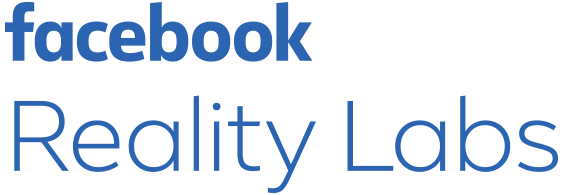ECML/PKDD Summer School (EPSS19)
EPSS’19 is on ‘Machine Learning and Data Mining for Geo-Spatial Data/Volunteered Geographic Information, Quality of Experience and Human-Computer Interaction.’
Sponsors

The summer school is technically sponsored by Qualinet - the European Network on Quality of Experience in Multimedia Systems and Services.

The summer school is financially sponsored by the Facebook Reality Labs - Facebook research's AR/VR division.
Key facts
- Summer school: 11. Sep. 2019 - 16. Sep. 2019
- Application:
APPLICATION IS NOW OPEN- 250 Euro registration fee for the summer school
- 100 Euro off of the ECML/PKDD 2019 registration fee for all accepted summer school participants
- Dates:
- 01.07.2019: Application deadline
- 04.07.2019: Acceptance notification
- 15.07.2019: Enrolment deadline
- 26.07.2019: Registration deadline
- Location:
University of Würzburg - Organizers:
Martin Becker, Martin Fischbach, Matthias Hirth, Florian Metzger - Steering Committee:
Tobias Hoßfeld, Andreas Hotho, Marc Erich Latoschik - Technical sponsor:
Qualinet - Financial sponsor:
Facebook Reality Labs - Co-located with:
ECML/PKDD 2019 and the International CCTB Summer School
Introduction
Machine learning and data mining techniques have become one of the main analysis, modeling and prediction tools for a multitude of application scenarios. The corresponding methodology becomes more sophisticated and is adapted to a wide variety of domain specific problem settings. As part of the ‘ECML PKDD Summer School’ (EPSS19), we aim to foster and support this development.
For this, we provide extensive foundations in state-of-the-art machine learning and data mining methods covering areas including basic concepts as well as state-of-the-art in deep neural networks and automated machine learning. At the same time, the summer school features tracks to delve deeper into domain-specific methods, algorithms, and applications. We focus on three specific topics:
- GEO: geo-spatial data and volunteered geographic information,
- QoE: quality of experience, and
- HCI: human-computer interaction.
This curriculum is accompanied by many hands-on sessions with several highly esteemed lecturers as well as the opportunity to work on innovative paper projects together with motivated Ph.D. students from around the world.
Target audience
Any practitioner and Ph.D. student interested in machine learning and data mining is invited. You will find our program especially interesting if you are working in the field of geo-spatial data, volunteered geographical information, human-computer interaction, natural interfaces, virtual-, augmented-, and mixed reality, social robots, quality assessment, subjective user studies and real-time interactive systems.
We also cordially invite master students, post-docs, and researchers (upon availability).
Concept of the Summer School
The summer school has a strong focus on practical aspects. The participants will get to know and learn to apply various machine learning and data mining techniques in their field of research. Therefore, the summer school has two parts:
- a general introduction to machine learning and data mining as well as
- three tracks with lectures and hands-on sessions aiming at the three specific topics mentioned above.
Through the whole summer school, the theoretical background is provided by lectures by well-known experts in their field. In hands-on sessions, the theoretical knowledge will be put into practice. All participants will work on concrete research topics in smaller groups:
- Lectures (40%)
- Hands-on sessions (30%)
- Group work on research topics (30%)
For the group work, Ph.D. students will be grouped according to their research interests and supervised by a tutor; the group will then define concrete topics to work on. Before the summer school, these groups will already start discussing potential research questions and how to investigate them. A poster presentation of the group’s ideas will take place during the summer school in order to foster collaboration and innovation between all groups.
During the summer school, the groups will get time to jointly research on their common topic with the support and help of the tutor. The results will be presented in a joint session with the ECML/PKDD conference on the last day and may be published in a joint publication of the research group.
List of topics
Main Track: Machine learning and data mining basics
- Basics of machine learning and data mining
- Automated machine learning (AutoML)
- Deep learning and neural networks
Application Track 1: Geo-spatial data and volunteered geographical information
- Modeling geo-spatial variables and human behavior
- Volunteered geographical information for machine learning
- Open Street Map Quality
- Remote sensing
Application Track 2: Quality of Experience
- QoE of immersive applications and games
- QoE of image and video quality
- QoE of haptics and tactile internet
- Analytical and data-driven QoE models
Application Track 3: Human-computer interaction
- Intelligent user interfaces
- Social computing
- Human shape and motion analysis
- Visual scene understanding
- 3D image analysis and synthesis
- Vision and language for explainable artificial intelligence